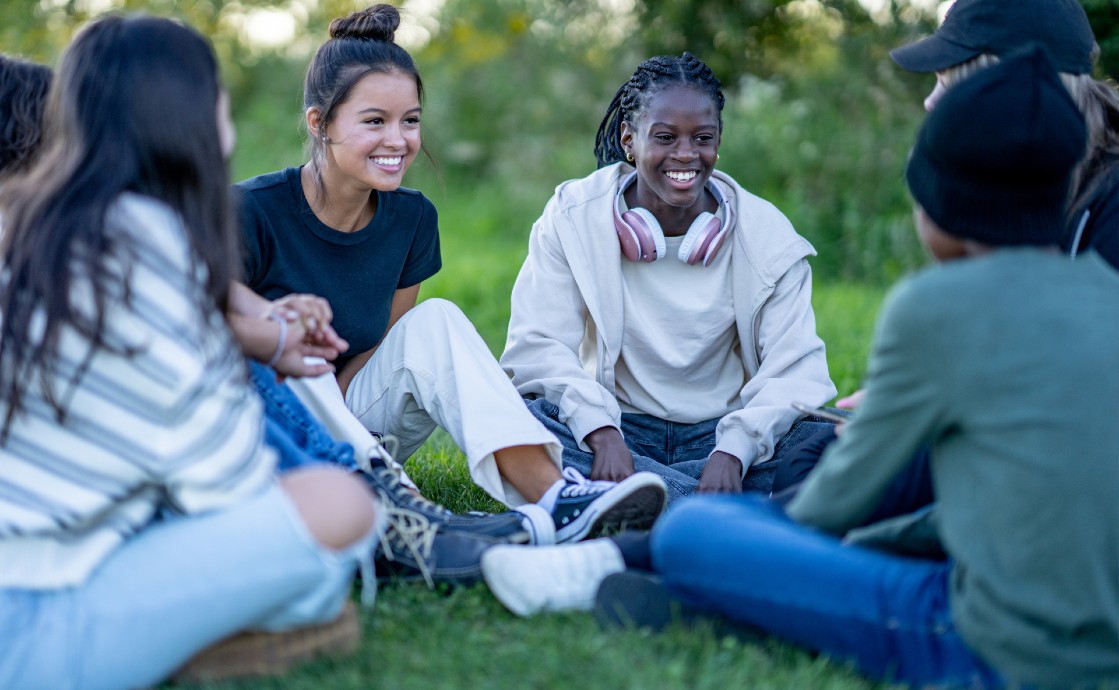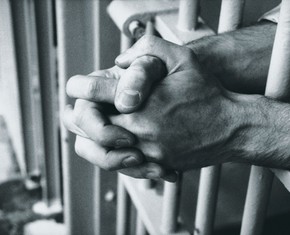The views expressed in our content reflect individual perspectives and do not represent the authoritative views of the Baha'i Faith.
It’s time we include teenagers in our conversations about gender inequality, because they often become its first and greatest victims.
Thankfully, the Baha’i junior youth spiritual empowerment program gives us a space to explore this issue with young people, and begin addressing a problem that has plagued generations.
RELATED: Women Waging Peace
Our discourse against gender inequality has quickly advanced in many societies, and we constantly learn new ways to address injustices that we weren’t aware of before. The Baha’i writings recognize the current injustice in society’s sexism—but also recognize it as a symptom of a lack of spiritual education:
Divine Justice demands that the rights of both sexes should be equally respected since neither is superior to the other in the eyes of Heaven. Dignity before God depends, not on sex, but on purity and luminosity of heart. Human virtues belong equally to all! – Abdu’l-Baha, Paris Talks, p. 162.
No matter how aware of this issue we might feel, as adults we too often shy away from discussing it with teenagers, perhaps thinking that we need to protect them from the injustices in the world. That’s unfortunate, because young people between the ages of 11 to 14—the age range that Baha’is call “junior youth”—often become gender inequality’s first victims.
We begin to see signs of it when adults and peers discourage teenage girls from being ambitious in their education or careers, objectify them, or deem them “hysterical” when they express their thoughts.
We see it when others mock teenage boys for having emotional reactions, discourage them from pursuing activities we traditionally consider “feminine,” or encourage them to value sexuality and physical strength over compassion and kindness. Our society bombards youth with toxic ideas about men’s and women’s places in society, and because so much of our media specifically targets this age group, they naturally respond to its influence.
Abdu’l-Baha, the son of the founder of the Baha’i Faith, said:
Until the reality of equality between man and woman is fully established and attained, the highest social development of mankind is not possible. Even granted that woman is inferior to man in some degree of capacity or accomplishment, this or any other distinction would continue to be productive of discord and trouble. The only remedy is education, opportunity; for equality means equal qualification. – Abdu’l-Baha, The Promulgation of Universal Peace, p. 76.
Some years back, I volunteered at a high school helping a class study the Baha’i junior youth spiritual empowerment program. This free program, developed by the Baha’i community in response to society’s growing need for a spiritual education that answers young people’s questions, allows junior youth to explore spiritual concepts, giving them a supportive space to develop friendships, discover their talents and channel their energies towards helping their own communities.
My group was a rowdy but very empathetic one. They loved to tell jokes and play games, but they also had opinions and stories to share about their neighborhoods and families. We had a lot of fun together as we discussed topics like the role language plays in human interactions, how we can improve our communities both spiritually and materially, and what makes true friendship. Because of this, their attitude during a conversation we had at the end of one group session shocked me.
The boys in the group were discussing a prominent hip hop celebrity—who I knew also happened to be accused of domestic abuse. When they asked me if I liked his music, I told them that I normally avoided supporting an artist that physically abused his girlfriend.
Their reactions stunned me: the boys laughed loudly, and the girls remained silent.
“But that’s love,” the boys said with amusement. “What do you expect him to do when he’s angry?”
I saw no malice in the boys’ eyes; they genuinely had no idea why I thought hitting one’s significant other was wrong, and even less idea of why I thought their question was disturbing. “People do it all the time,” they justified themselves. “They argue. They fight. What are you supposed to do when you’re so angry? Sometimes you just can’t control it.”
Some might attribute these attitudes to the high school’s low-income region, where many socio-economic problems existed, but I didn’t believe that a metropolitan, high-income school would have been any better. While attitudes on the surface might have been different, youth deal with the same toxic messages everywhere in the world: that men can’t control themselves, and love is violent.
In this situation, I met their crude statements with an equally crude comeback: “What happens when your bladder is full? Do you urinate all over yourself, or do you wait until you get to the bathroom? You have control over your body in that situation … why wouldn’t you have it when you’re angry?”
A few giggles erupted, but as the idea sank in they fell silent. They had probably seen their parents fight, and their fathers beat their mothers. Some were likely victims of domestic abuse themselves. Until we had the conversation in the junior youth group, they had never seen anyone question the idea that violence had a place in family life:
Now in the two lower kingdoms of nature we have seen that there is no question of the superiority of one sex over the other. In the world of humanity we find a great difference; the female sex is treated as though inferior, and is not allowed equal rights and privileges. This condition is due not to nature, but to education. In the Divine Creation there is no such distinction. Neither sex is superior to the other in the sight of God. Why then should one sex assert the inferiority of the other, withholding just rights and privileges as though God had given His authority for such a course of action? – Abdu’l-Baha, Paris Talks, p. 161.
In other places that recognize domestic violence as abuse, things aren’t necessarily better. Emotional abuse and stalking plague the lives of young girls, especially near the end of middle school and at the beginning of high school.
One of the girls from another junior youth group once approached me to tell me about a much older boy who was sending her inappropriate messages, attempting to pressure her into doing things she didn’t want to do. While I knew nasty encounters like that were rampant in high school, I was impressed that her instinct was to go to someone older than her. She felt comfortable coming to me and showing me the messages, asking me to confirm her suspicions that someone was taking advantage of her.
At the end of the day, I’ve learned, junior youth who have explored spiritual topics in a supportive environment know what’s right and what isn’t. They know when a line has been crossed, and when language is being used to manipulate—after all, they have analyzed misuses of language and situations of disrespect within their junior youth groups.
RELATED: Examining the Unique Spiritual Qualities of Women
Best of all, they have someone to go to: their animator, the person who guides the group throughout their study. That girl felt comfortable coming to me, because she knew that I would recognize the situation. I’m close enough in age to have grown up in the era of cell phones and the internet, and still have vivid memories of similar situations in my own life. She also knew that I would not judge her: that I would advise her on what to do, and encourage her to make the right decision, but that I wouldn’t condemn her for any mistakes she might have made along the way.
A Baha’i junior youth group does more than just hold day-to-day meetings—it offers a supportive space at all times, even if it’s just a group of two or three people discussing something that happened.
Young people struggle with inequality in their social interactions, especially on social media. For many youth, exposed to the wrong sources of information, mocking movements for women’s progress and the elimination of toxic masculinity has become a new joke—something normalized and laughed about, attempting to illogically justify the dangerous old idea of female inferiority. Memes and comment threads have just become a new manifestation of those same boys who laughed in my face when I said domestic violence was wrong—and those silent girls, too. Those attitudes, unless they’re challenged, simply manifest a fundamental lack of spiritual education for both girls and boys.
But if we create spaces where junior youth can explore their experiences with guidance and without judgment, they can come to understand each other’s experiences and the way injustice affects the people around them. They will also learn how to cope with complicated—or even dangerous—situations, and come up with new solutions to these issues that perhaps previous generations didn’t think of before.
















Comments
Sign in or create an account
Continue with Googleor